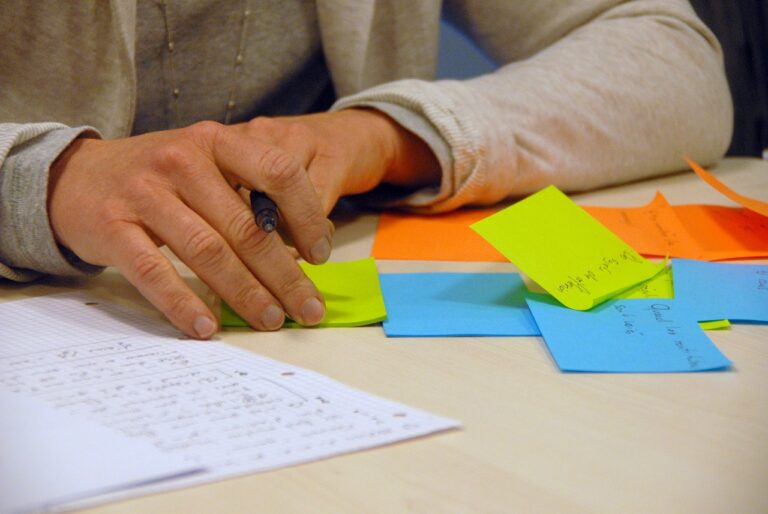Promoting Metacognitive Strategies for Learning
betbhai9 whatsapp number, play exch.in, lotus365.win new id:Promoting Metacognitive Strategies for Learning
Have you ever found yourself struggling to retain information or feeling overwhelmed with the amount of material you need to study? If so, you’re not alone. Many students face similar challenges when it comes to learning effectively. That’s where metacognitive strategies come in.
Metacognition is the process of thinking about your own thinking. It involves being aware of your thought processes, monitoring your understanding of a subject, and evaluating your learning strategies. By promoting metacognitive strategies for learning, you can enhance your ability to absorb and retain information, ultimately leading to better academic performance.
In this article, we will explore the importance of metacognition in learning and provide practical tips for incorporating metacognitive strategies into your study routine. Let’s dive in!
Understanding Metacognition
Before we delve into specific strategies for promoting metacognition, let’s take a moment to understand what metacognition is and why it matters in the learning process.
Metacognition involves two key components: metacognitive knowledge and metacognitive regulation. Metacognitive knowledge refers to your understanding of how you learn best, your awareness of your strengths and weaknesses as a learner, and your knowledge of different learning strategies. Metacognitive regulation, on the other hand, involves the ability to plan, monitor, and evaluate your learning processes.
When you actively engage in metacognitive strategies, you become more aware of your learning habits and can make adjustments as needed to improve your comprehension and retention of information. By taking a proactive approach to your learning, you can become a more effective and efficient student.
Promoting Metacognitive Strategies
Now that we have a basic understanding of metacognition, let’s explore some practical strategies for promoting metacognitive skills in your study routine. By incorporating these techniques into your learning process, you can enhance your ability to learn and retain information more effectively.
1. Set Clear Learning Goals
One of the first steps in promoting metacognitive strategies is to set clear learning goals. Before you begin studying a new topic, take a moment to define what you want to achieve. Having clear, specific goals can help guide your study sessions and provide a sense of direction.
2. Monitor Your Understanding
As you work through a new concept or topic, take time to monitor your understanding. Ask yourself questions like, “Do I understand this concept fully?” and “Can I explain this to someone else?” If you find yourself struggling to answer these questions, it may be a sign that you need to review the material or seek additional resources.
3. Use Active Learning Techniques
Active learning techniques, such as summarizing material in your own words, teaching the material to a peer, or creating flashcards, can help you engage with the material on a deeper level. By actively participating in your learning process, you can improve your comprehension and retention of information.
4. Reflect on Your Learning
After each study session, take time to reflect on what you’ve learned. What concepts were challenging for you? What strategies were most effective in helping you understand the material? By reflecting on your learning experiences, you can gain valuable insights into your learning process and make adjustments as needed.
5. Seek Feedback
Feedback is an essential component of the metacognitive process. Whether it’s from a teacher, classmate, or tutor, seeking feedback on your understanding of a subject can help you identify areas for improvement and refine your learning strategies.
6. Practice Self-Testing
Self-testing is a powerful metacognitive strategy that can help you assess your knowledge and reinforce learning. By regularly testing yourself on the material, whether through practice quizzes or flashcards, you can identify gaps in your understanding and focus on areas that require further review.
7. Create a Study Plan
Developing a study plan can help you manage your time effectively and ensure that you cover all necessary material. By breaking down your study sessions into smaller, manageable tasks, you can avoid feeling overwhelmed and stay on track with your learning goals.
8. Stay Organized
Organization is key to promoting metacognitive skills. Keep your study materials, notes, and resources in order to facilitate easy access and review. By staying organized, you can reduce distractions and focus on learning more effectively.
By incorporating these metacognitive strategies into your study routine, you can enhance your learning experience and improve your academic performance. Remember, metacognition is a skill that can be developed and honed over time. By being proactive and reflective in your learning process, you can become a more efficient and effective learner.
FAQs
Q: How can metacognitive strategies help me as a student?
A: Metacognitive strategies can help you become more aware of your learning process, making you more efficient and effective in your studies. By monitoring your understanding, setting clear goals, and reflecting on your learning, you can improve your comprehension and retention of information.
Q: How can I incorporate metacognitive strategies into my study routine?
A: To incorporate metacognitive strategies into your study routine, start by setting clear goals, monitoring your understanding, using active learning techniques, seeking feedback, and practicing self-testing. By making these strategies a regular part of your study habits, you can enhance your learning experience.
Q: Can anyone benefit from promoting metacognitive strategies?
A: Yes, metacognitive strategies can benefit learners of all ages and backgrounds. Whether you’re a student in high school, college, or a lifelong learner, developing metacognitive skills can help you improve your learning process and achieve your academic goals.
In conclusion, promoting metacognitive strategies for learning is essential for enhancing your learning experience and improving your academic performance. By being proactive and reflective in your study habits, you can become a more effective and efficient learner. Incorporate metacognitive strategies into your study routine today and watch your learning abilities soar.







